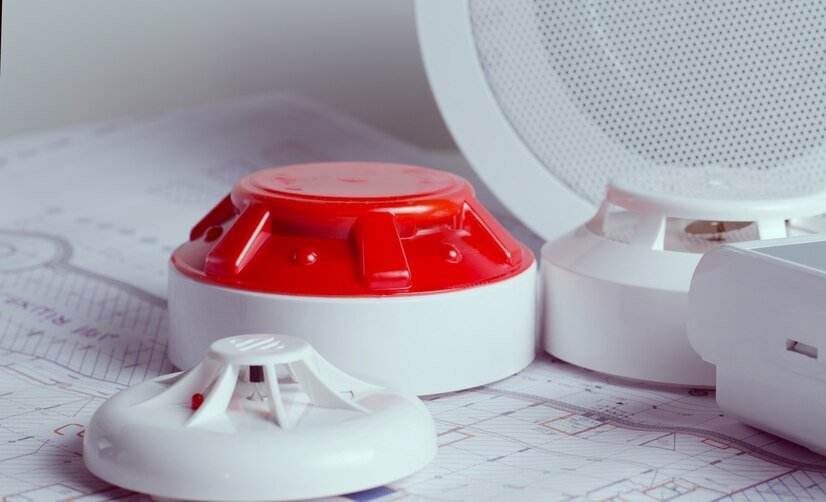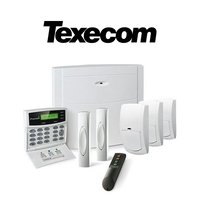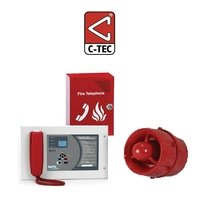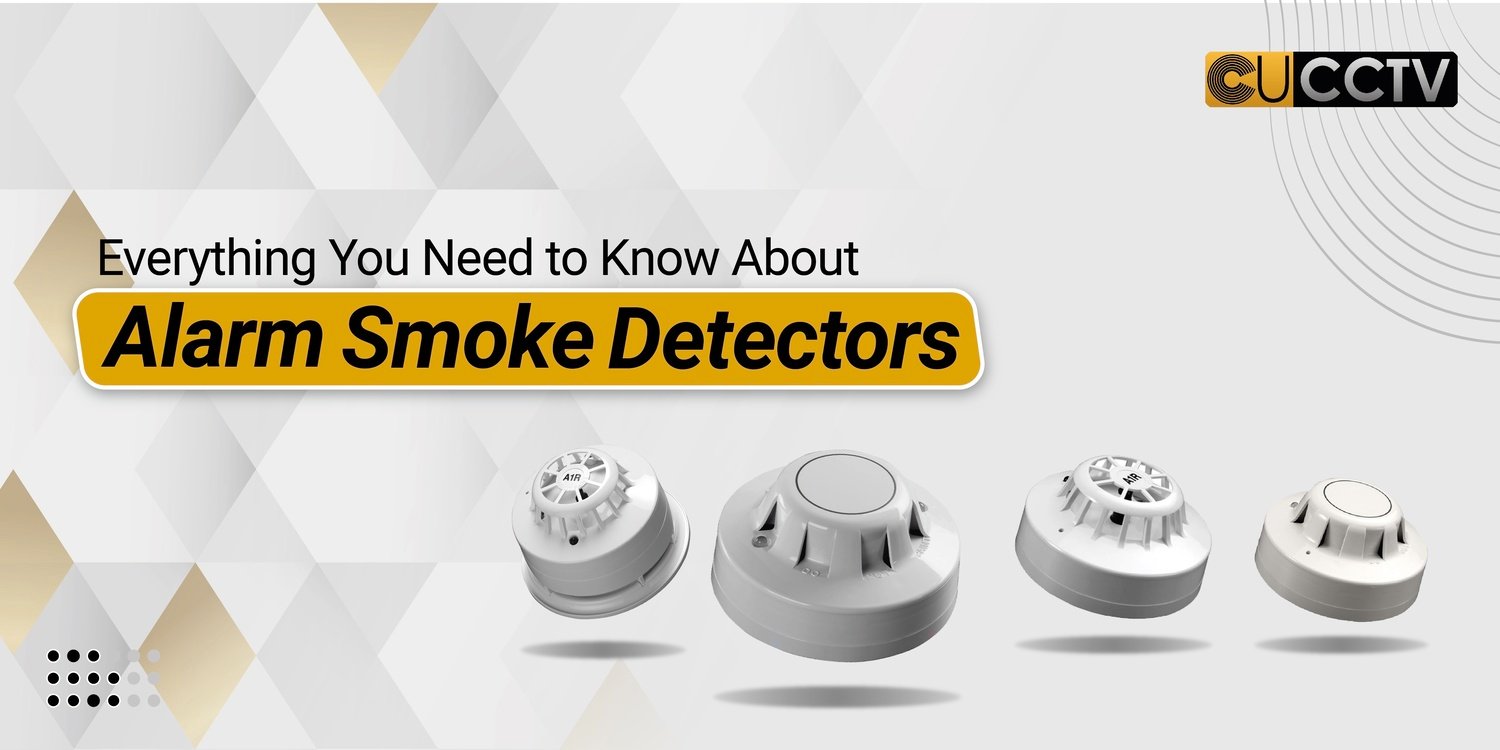Smoke detectors save lives in the event of a fire. This is the main reason why your home or company should have these simple and cheap systems installed, regardless of whether or not they are required by the regulations: by having a smoke alarm, you ensure safety. we’re supporting 2 fire alarm brands include AJAX alarm system & CTEC.
What is a smoke alarm?
A smoke detector is an electrical fire-fighting device. When a possible source of fire occurs, the smoke that rises to the top due to a difference in density is detected and produces a sound alarm giving notice to all those who are in the vicinity.
These devices contain sensors with a certain level of sensitivity that locates fumes that, due to their composition and density, are considered dangerous, such as those produced by burning furniture or fires.

Types of smoke detectors
There are four predominant systems on the market, two for smoke and two for fire:
- In the so-called optical type, the device has a photoelectric cell to which a beam of light is always pointing and if that light is interrupted by smoke, it activates an alarm.
- The other type, the ionic one, consists of ionizing the air inside the detector, and creating an electric current and the smoke would block it once it manifested and activate the alarm. The latter is no longer being used due to their greater complexity in their removal as waste.
- Thermal detector. It is not a smoke alarm as such, but a fire detector, since it works by the fusion of an element when a high temperature is reached. They are late detection (normally, they are activated around 68 ºC) and can only be installed on-premises up to 7 meters high. Generally, they are used when a conventional smoke detection system cannot be used; for example, in kitchens or garages.
- Radiation detector. It is also not a smoke detector, but a fire detector. It detects, through different electronic elements, the presence of radiation generated by the presence of a fire. They are installed only in open rooms or places with very high ceilings and produce a late alarm.
Depending on the type of detector, a maintenance plan or another must be established, since some are more sensitive to dirt and can lead to false alarms.

Difference between a smoke detector and a smoke alarm
Also, it is important to point out that there is a difference between a smoke “detector” and a smoke “alarm”. A smoke detector (like apollo series 65 smoke detector) is just a sensor that monitors smoke and is connected to a building-wide fire alarm system, while a smoke alarm has both the sensor to monitor the smoke and the speaker that emits the sound to warn the occupants of the house.
10 things you didn’t know about smoke alarm
Did you know that most smoke detectors connected to an alarm work even when the alarm is off?
Smoke detectors, a product that can be included in an alarm system, can warn you of a dangerous situation in time, and without a doubt save lives and the things that matter most to us. Here, we remind you of some routines that are very useful when it comes to preventing any type of accident with fire or electricity:
1. The installation paradox
According to statistics, most home fires start in the kitchen or chimneys, but curiously, these are the places where we are normally recommended not to install a smoke alarm since they can often be exposed to a higher degree of false alarms.
So, what is the best solution?
Experts recommend following prevention routines, related to bad habits, such as leaving something on the fire (kitchens and barbecues take most of the domestic accidents) or something as simple as candles near curtains or plastic. A good idea would be to avoid materials that are likely to burn in a short time in the vicinity of frequent fires: candles can be inside a glass container, and barbecues must have a nearby cold air draft and a clean filter, to prevent a spark from causing a nasty accident.
2. Be careful how to put out the fire
Water will not help you in many cases to avoid an accident. If the source is electrical, we already know that we will not be able to wet any surface, but the same case can be found when the fire is already active and our smoke alarm sounds indicate that the smoke is consistent. The best idea is to use extinguishing methods that also suffocate the smoke generated by a domestic accident, such as fire blankets, avoiding fire extinguishers as much as possible unless the fire is very localized and does not generate an added risk.
3. Watch out for chimneys
If you have a chimney, frequently check the air intake and the smoke outlet: Bad combustion caused by a lack of care of the ventilation channels is a very frequent incident. Also, if you have an electric or gas fireplace, follow the manufacturer’s care instructions, since they are devices that frequently have sporadic use, and accumulate dirt and dust due to lack of continued use.
4. Solution for overloads
Always charge your electrical devices under surveillance: they can overheat and the cables can be in poor condition. An increasingly common cause of burns in the home is the explosion of small electrical appliances due to excessive load, for example. mobile phones, tablets, and laptops. Respect the charging times and do not always leave the chargers connected.
5. Insurance that does not cover
Insurance companies will not cover non-professional installations and excess accumulated energy: fire is not always an accident, and companies will investigate if there was previous negligence in the use of non-approved materials, we recommend professional security installations with monitoring, to avoid later headaches.
Shop The Best Smoke Detector Now!
Check All CTEC Fire Products here:
Conclusion
Smoke alarms are important for fire protection in your home because the risk of dying in residential structure fires is 55 percent lower in homes with a working smoke alarm than in homes without or non-working alarms. Buying smoke alarms can be a bit confusing for someone who doesn’t know all the different types and the terminology that is used. Therefore, in this article, we went over some of the most important information to help you choose the best alarm.














